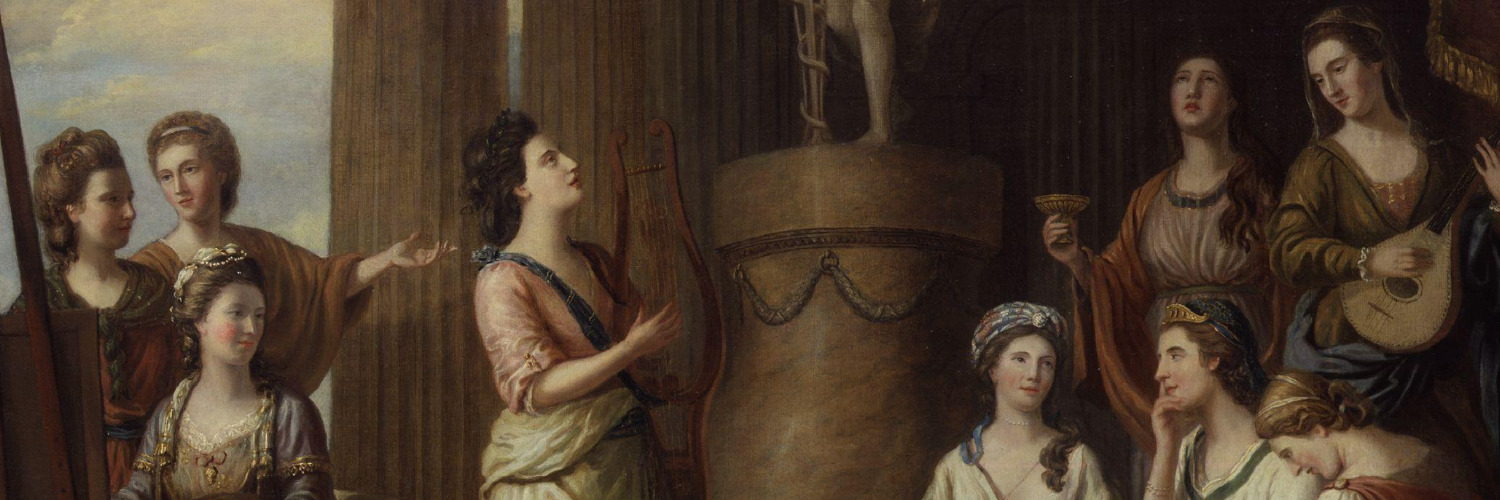- Physical form: One sheet folded into 2 leaves (19 x 23 cm folded)
- Cover: Mrs Withering / Crescent / Birmingham
- PM: 12o’Clock / AP 13 / 1811 N.n
AP 13 811
TwoPy Post / Unpaid / Stoke Newington - WM: None
- SM: Misc MS 4373
It gave me particular pleasure to recieve a letter from you & I ought to feel particular gratitude also, since I find I did not deserve it. I was going to write to you, for I wished very much to have an account from yourself of your health, but rather with the idea that a letter was owing on your side. As it was not, I shall take care not again to delay paying my debts till I am dubious whether I owe them or no, for believe my dear Mrs Withering I value very highly the kind expressions of your affection, & would not, on any account, neglect a correspondence which is truly dear to me. Your letter would now have been answered sooner, but that I have had a young lady, (Sarah Taylor)
in the house & have also spent some days at Hampstead. I was at Miss Baillie’s as well as Miss Fletcher,
a young lady from Edinburgh who, as perhaps you know, has been resident with me this winter & who by the way is an extremely pretty girl & very sweet & amiable in every respect. They made me go to a party at Mrs Milligan’s, Roslin house,
(I cannot tell whether you know the family) where there was a dance for the young folks, not children, but just above; the blossoming age; lovely fifteen & sixteen, with roses not yet breathed upon by the contaminating air of London drawing rooms & public places. Mrs Carr brought her three eldest & a very pretty
niece
[fol 1v] niece to the dance & if she felt proud I can excuse her. There was one indeed of a maturer age Mrs Powell, the late Sophia Hoare,
who, being freed from the trammels of Quakerism, danced all the evening apparently with much pleasure to herself & to her father, still a Quaker, who sat by—The Milligans were a new family to me, do you know them, they seem amiable? I took a melancholy walk along Church Row, where now there is not a single person I know, or a single door at which I could knock. I drank tea at Mrs Slater’s where we talked of you & where I met two very good friends of yours, Mr & Mrs Ware.
—I heard there, (I hope I do not take an unpleasant liberty in mentioning it) that you are again in expectation of a blessing of which I earnestly hope & pray that you may not be again disappointed
—Well, I think I have no other excursion to tell you of except that Miss Fletcher & I (for without the inducement of taking her I am sure I should not have gone) saw a French Play acted at Dr Marcett’s by French emigrants.
The Play was Racine’s Berenice
& it was very well acted, an advantage that Play requires to render it interesting, for you may recollect that it has neither incident nor catastrophe; there is no change of fortune. It begins with Titus’s intention to part with his mistress &
[fol 2r] accordingly he does part with her; the love of Antiochus leads to nothing, & three confidants are introduced for no purpose in the world but to be good hearers. In short, the Play could never have sustained itself but for the sweetness of the verse, some charming lines which every body repeats, & the allusions, which at the time were well understood, to the loves of Louis 14th & Mary Mancini— You may be ready to think perhaps from the two incidents which have taken up my letter that we are in very good spirits at Newington. Indeed far from it. The mercantile distress, which is every where around us, has claimed our sympathy & of late it has approached our nearer connections, & draws forth stronger feelings; for I suppose you may have heard that Thomas Robert & Arthur Kinder (the American house) have stopped payment.
The failures at New York & the lamentable state of commerce have occasioned it, no body casts the shadow of blame upon them. Robert is the only one who has a family, his wife is just ready to lie in, she bears the event with uncommon firmness——We have been greatly distressed too for Mr & Mrs Lee of Newington Green
from the same cause, they are among our most esteemed friends—Where will these things end? When will peace
the
[fol 2v] only panaceæ for these wounds & distempers once more bless the earth! Nothing surely but a strong faith in providence can support the mind under the scenes which are passing
[cover text]
in the world. Public calamities ought to make dearer private friendships tho believe me nothing is wanted to stimulate the affection with which I am, my dear Mrs Withering
most faithfully Yours
Pray make my best Compts
Acceptable to Mr Withering
April 12th

